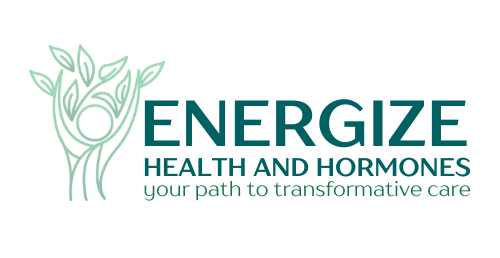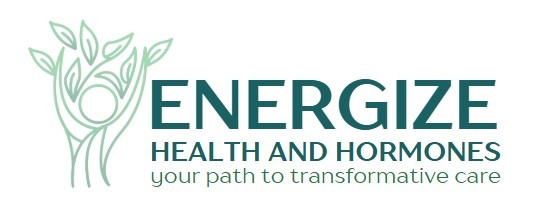
When you hear the phrase “hormonal imbalance,” you might picture something more commonly associated with women. But the truth is, men have hormonal systems just as complex and vital to their health. Testosterone, often thought of as the key male hormone, plays a crucial role in energy, mood, muscle strength, and libido. When it falls out of balance, it can leave men feeling far from their best.
Yet, many men shrug off symptoms like fatigue, weight gain, or low motivation, chalking them up to aging or stress. Let’s bust a myth right now: While aging can influence hormone levels, it doesn’t mean you have to accept feeling tired, sluggish, or out of sorts as your new normal.
What Causes Hormonal Imbalances in Men?
Hormonal imbalances can stem from a variety of factors. Age plays a role, of course. Testosterone production naturally declines as men get older, usually starting around age 30. But other culprits like chronic stress, poor diet, lack of sleep, and exposure to environmental toxins can speed up the decline or throw your hormones off balance entirely.
It’s not just about testosterone, either. Cortisol, known as the stress hormone, and insulin, which regulates blood sugar, also play a part in your body’s overall hormonal health. When these systems are out of sync, it’s like a domino effect, impacting everything from your mood to your metabolism.
How Men Can Support Their Hormonal Health
Taking charge of your hormonal health doesn’t have to mean complicated regimens or extreme diets. Small, practical steps can make a big difference.
1. Feed Your Hormones Your body needs the right building blocks to produce hormones, and a nutrient-rich diet is key. Focus on whole foods: lean proteins, healthy fats (like those found in avocados, nuts, and olive oil), and plenty of fruits and vegetables. These provide essential nutrients like zinc, magnesium, and vitamin D, all of which support testosterone production.
Processed foods, sugar, and alcohol? Not your hormones’ best friends. These can cause inflammation and lead to imbalances. Instead, opt for whole grains and high-fiber foods that help stabilize blood sugar and support hormone metabolism.
2. Move Your Body Exercise isn’t just about building muscle; it’s also a powerful way to support hormonal health. Resistance training, like lifting weights, can boost testosterone levels, while regular cardiovascular exercise helps keep cortisol and insulin in check.
Not into the gym? No problem. Find something you enjoy, whether it’s cycling, hiking, or a weekend basketball game with friends. The key is to stay active and consistent.
3. Get Quality Sleep Sleep isn’t a luxury; it’s a necessity for hormonal health. During deep sleep, your body produces testosterone and regulates other hormones like cortisol. Aim for 7-8 hours of uninterrupted sleep each night. If you’re struggling to wind down, try reducing screen time before bed, keeping your bedroom cool and dark, and setting a regular sleep schedule.
4. Manage Stress Chronic stress is a hormonal wrecking ball. When cortisol levels are perpetually high, they can suppress testosterone production and disrupt other hormonal processes. Stress management doesn’t have to mean meditating on a mountaintop (unless that’s your thing). Simple practices like deep breathing, spending time outdoors, or pursuing hobbies can work wonders.
5. Know Your Limits While coffee can be a great pick-me-up, too much caffeine can interfere with sleep and elevate cortisol levels. The same goes for alcohol. Moderation is key; you don’t have to give these up entirely, but keeping them in check will help support hormonal balance.
When to Seek Professional Support
Sometimes, despite your best efforts, your hormones need more help. That’s where a functional and integrative medicine approach comes in. If you’re experiencing persistent symptoms like fatigue, low libido, weight gain, or mood changes, it might be time to talk to a doctor.
Advanced Testing Comprehensive tests can measure levels of key hormones, including testosterone, cortisol, and thyroid hormones. These tests go beyond standard screenings to give a detailed picture of what’s happening in your body.
Hormone Therapy For men with low testosterone, testosterone replacement therapy (TRT) may be an option. This therapy can help restore energy, improve mood, enhance libido, and support muscle strength. A doctor can guide you through the benefits and potential risks to determine if it’s right for you.
Personalized Lifestyle Plans Beyond treatments, doctors can provide tailored advice on diet, exercise, and stress management to support your hormonal health over the long term. These plans are designed to complement your lifestyle and make lasting improvements.
Takeaway
Your hormones don’t have to be a mystery or a source of frustration. With a little attention and care, you can support your body’s natural balance and feel your best at any age. Whether through lifestyle changes or professional support, taking charge of your hormonal health is an investment in your energy, vitality, and overall well-being.
STAY IN THE LOOP


